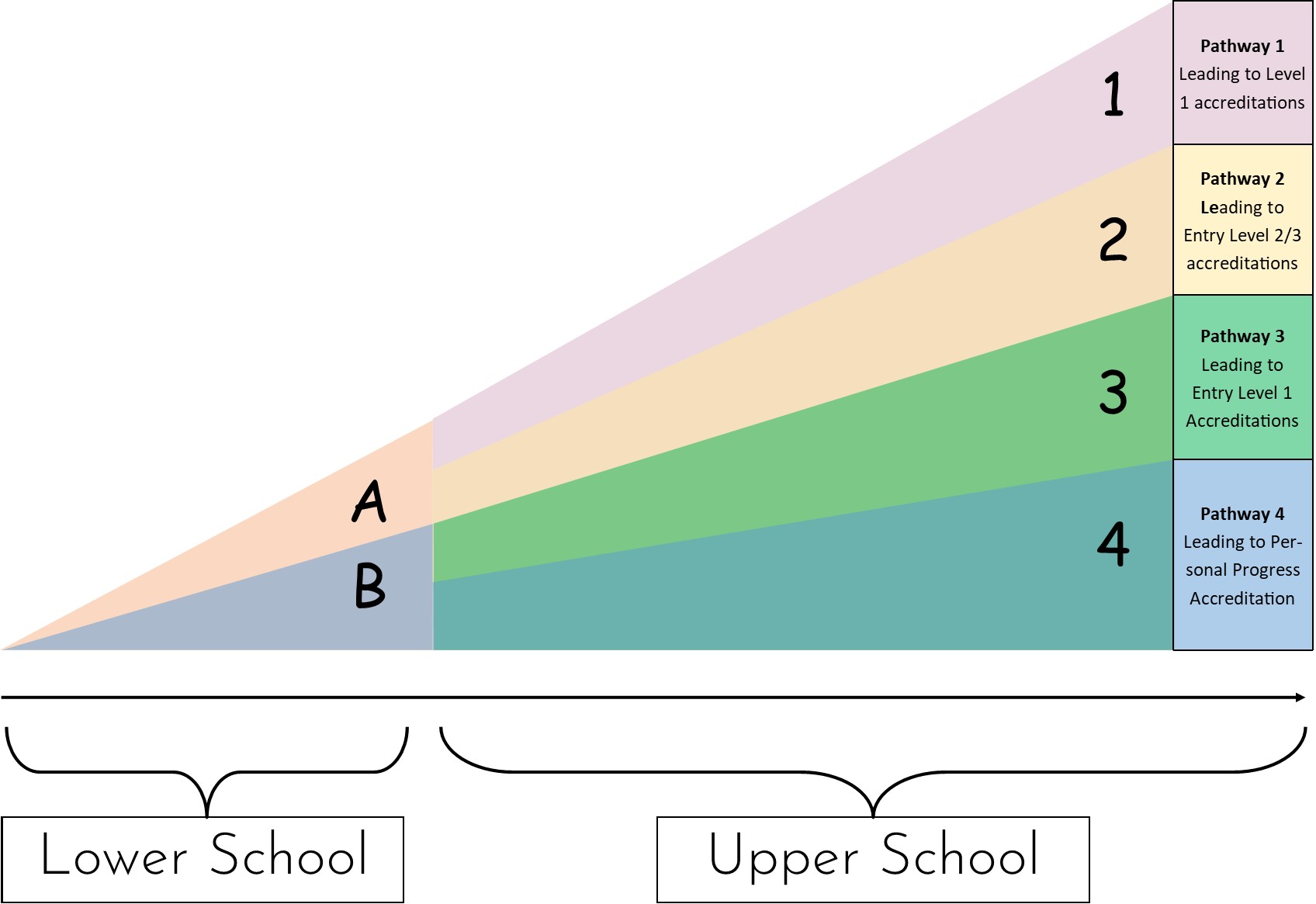'Pathways' Curriculum
Our Collett Curriculum Intentions
Our curriculum seeks to meet the individual's needs and prioritise those most important to them. We have moved away from the teaching of separate subject areas, instead, combining those most important aspects of the national curriculum under themed areas of learning;
-
COMMUNICATION: To be able to communicate effectively with members of their community. To be able to read and write in everyday contexts
-
FUNCTIONAL SKILLS: To acquire and practise the skills to communicate effectively at their individual level and for their individual needs. To understand how to apply functional skills in life and work.
-
PERSONAL DEVELOPMENT: To be able to form positive relationships and manage their own emotions. To develop the physical skills to interact effectively with the world.
-
UNDERSTANDING MY WORLD: To develop an awareness of the world around us, including all forms of diversity and how to stay safe and healthy. To be able to use mathematical skills functionally.
Our Collett School Pathways Curriculum pdf
What the Curriculum Looks Like for Your Child
Here at The Collett School, our pupils are placed in groups that stay together for the school day. These classes are collated within Lower and Upper school departments, which support teachers to share planning and learning activities in accordance with age-related learning requirements.
Class makeup takes several factors into account – age, personality, friendships, EHCP requirements, sensory and learning needs to create the best dynamic group. As such, children from different year groups are often placed together where we feel this will support learning best. In creating learning groups in this way, we can support individuals to be in the best place to support behaviours for learning unlike a system of year group classes as in a mainstream school.
With the wide range of abilities within each class (including children with very spiky learning profiles) pupils will likely follow different Pathways of Learning within the same class. Topic work brings together thematic approaches to learning, whilst our assessment and coverage ensure personalisation and differentiation of learning materials to reach our challenging progress targets and, ensuring the child’s EHCP requirements are met.
For pupils with complex needs that require interventions, some groups work collectively well with these forming part of the holistic curriculum for that class. In other groups, specific interventions take place both in and outside the classroom setting.
Teachers work together to make learning fun and engaging. Classes often work together and timetable days are collapsed for specific projects and activities for learning.
Where specific age-related learning is required, such as relationships and sex education, these subjects are taught in separate gender age groups. With children identifying as non-binary, we work closely with these pupils and their families to ensure the child’s needs are met.
Year 11 pupils are taught together where possible, in order to support their diverse interests through subject-specific classes they can choose options from. In addition, a significant amount of additional work takes place around the transition to college as a cohort.
More About Pathways
Our curriculum and subsequent planning is divided into two sections, based on the differing needs of our pupils within the Lower and Upper school - with relative and meaningful aspirations. Pupils follow a Learning Pathway, designed to help them achieve the best possible outcome from their time in school.
The learning intentions within the Curriculum Pathways are aligned to the National Curriculum, but topics are chosen that are relevant to the needs, skills and understanding, as well as interests of the pupils. We strive to ensure that the topics chosen reflect the ages of the pupils exploring them; otherwise, they are left vulnerable, particularly when out in the community. e.g. a young adult with a Thomas the Tank engine lunchbox. There are no perceived limitations to what pupils can achieve.
Accurate assessments and benchmarked progression standards ensure the child progresses on the right pathway, with appropriate challenge, relevance and, aspiration. Dependent on speed, accuracy and confidence of learning, children can move between the Pathways without any ‘glass ceilings’ or barriers to progress.

